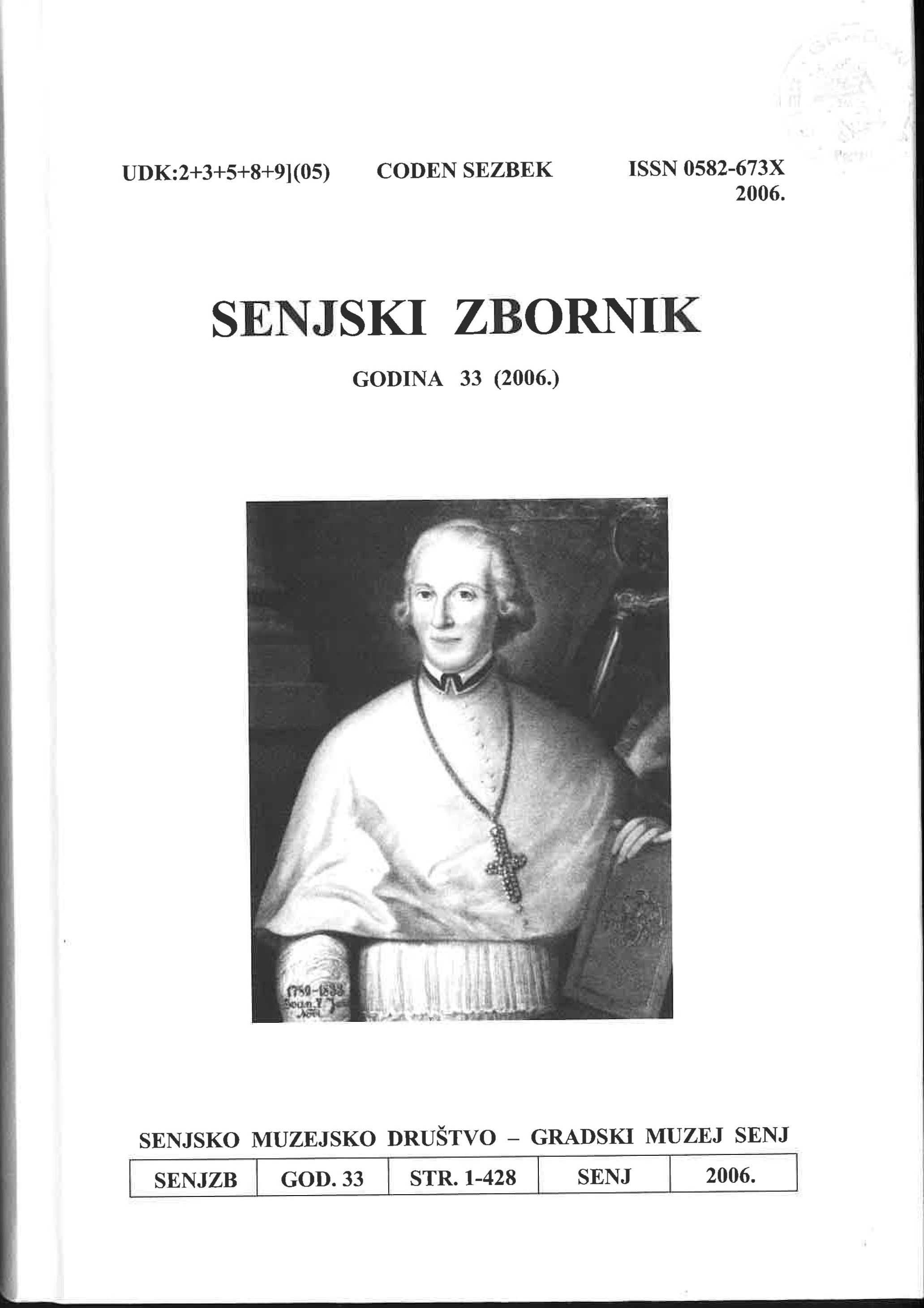Senjsko sjemenište te Visoko filozofsko i teološko učilište u njemu 1806. – 1940.
Senj Theology Seminary and High Philosophy and Theological College 1806-1940
Author(s): Mile BogovićSubject(s): Christian Theology and Religion, School education, Higher Education , History of Education, 18th Century, Interwar Period (1920 - 1939), Pedagogy
Published by: Senjsko muzejsko društvo i Gradski muzej Senj
Keywords: Senj Theology Seminary; High Philosophy and Theological College;
Summary/Abstract: The Senj Theology Seminary, with one short break, was working from 1806 until 1940. During this period the school educated numerous valuable priests for its own bishopric as well as many cultural workers and teachers for its own people. Ante Starčević and Franjo Rački were also theologians of Senj-Modruš, but later they found themselves on opposing political positions. Theologians preferred to keep memories of Starčević than Rački. At the time when the unfriendly currents for the Croatian option worked on the separation of Rijeka from Senj, there were constant repetitions that from Senj only Croatian nationalists were coming. Senj had, really, always kept the Croatian spirit as well as its Seminary.The Seminary and the Philosophy and Theological College within worked in a very difficult time. Alongside the financial problems, during the first period, there were the problems related to the lack of qualified professors. Later, this problem was not so present although it was always there. The main problems were created by the lack of students. This was especially present in the time when Senj High School did not work. Without accomplished high school education it was not possible to continue education in philosophy and theology. From 1816 until 1845, the Philosophy Boarding School, whose accomplishment was a condition for the study of theology, was a private institution with non-paid professors and many times without the necessary qualifications. In 1849 the high school education was extended from six to eight years and the last two years replaced the previous philosophy boarding school. After this the situation became more favourable regarding the status of professors and the school, but these two added years of education became poorer in providing the knowledge necessary for the preparation for theology studies. Bishop Ožegović contributed a lot to the Senj High School and Theology College when in 1857 established the Convent School in Senj. This was helpful for the High School because it gave possibilities for talented students from villages to attend this school and to the Theology College in the way that the students in the Convent School were directed toward theology. Certainly, this worked for those who had chosen this kind of education. When this was not enough and still when only a small number of the high school students applied for further studies at the Theology College, Bishop Vjenceslav Soić tried to renew the Philosophy Boarding School in 1874. After a bad experience, he had to close it down at the end of the school year. The Philosophy Boarding School was renewed in 1909 and it worked until the closing of the Seminary in 1919. It was already clear that the High School was providing a general education and it did not prepare its students only for the study of theology as this was the case with the Philosophy Boarding School.WWI had a negative impact on the work of the Seminary because some of the students enrolled in this school only to avoid military service, and after the war they took away those who already had priest vocation. Bishop Marušić, therefore, closed the Seminary in 1919 and sent candidates for priests to some other colleges, mainly in Zagreb. Some people considered this as being improvident, one of them being Professor Ivan Starčević. When he was entitled the Bishop of Senj and Modruš in 1932, he decided to reopen the Seminary and Theology College in Senj. He succeeded in this is only one year. He was very keen to raise the number of students and further clerics, so he accepted to the Seminary the candidates from all around, without a serious selection. If Starčević had lived longer (he died in 1934), he would, certainly have put this Seminary on its feet. His successor Viktor Burić (1935-1983) did not approve the opening of the Seminary in Senja because the situation was not mature. In 1940 he closed down the Seminary with the same reason as Marušić did in 1919 although, momentary, there was relatively large number of students there (37).
Journal: Senjski zbornik - prilozi za geografiju, etnologiju, gospodarstvo, povijest i kulturu
- Issue Year: 33/2006
- Issue No: 1
- Page Range: 125-193
- Page Count: 69
- Language: Croatian

